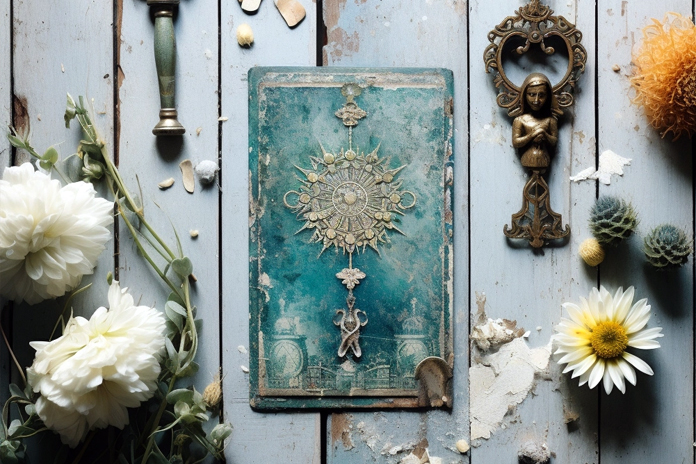In the mystical realm of tarot readings, the choice of deck is as personal as the journey of self-discovery it facilitates. Whether you are a seasoned reader or new to the world of tarot, understanding the nuances between the most influential tarot decks—Rider Waite, Marseille, and Thoth—can enhance your reading experience and spiritual journey. This guide offers an authoritative analysis of these powerful tarot decks, equipping you with the knowledge to make an informed choice. You will find healthy debate online amongst die hard tarot enthusiasts, wade in at your peril! This article is just designed to give a bare bones overview to help you on your journey to your favourite system.
Deciphering the Mystique: Rider Waite, Marseille, Thoth Explained
Rider Waite Smith (RWS) Tarot Deck: Introduced in the early 20th century, the Rider Waite Smith deck is celebrated for its rich symbolism and intuitive imagery. Illustrated by Pamela Colman Smith under the guidance of academic and mystic A.E. Waite, this deck is renowned for its detailed pictorial representations of all 78 cards, making it especially friendly for beginners. The RWS deck’s imagery is deeply embedded with esoteric symbols that draw from a variety of traditions, making it a versatile tool for meditation, reflection, and decision-making.
Marseille Tarot Deck: Dating back to the 17th century, the Tarot de Marseille is one of the oldest tarot decks in existence. It is distinguished by its iconic and medieval art style, with primary colors and symbolic imagery that has influenced the design of many subsequent decks. The Marseille tarot is particularly revered for its Major Arcana, while its Minor Arcana cards are more abstract, often featuring geometric arrangements of suit symbols rather than scenic illustrations. This deck appeals to those with an appreciation for history and a penchant for a more traditional interpretive approach.
Thoth Tarot Deck: Created by Aleister Crowley and painted by Lady Frieda Harris, the Thoth deck is a product of the mid-20th century. It stands out for its intricate, abstract, and thematic artwork, deeply rooted in Crowley’s Thelemic philosophy. The Thoth deck incorporates a wealth of astrological, sephirotic, elemental, and alchemical symbolism, making it a rich field of study for those drawn to occult traditions. Its complexity and depth offer profound insights, though it may present a steeper learning curve for newcomers.
Making Your Choice: Which Deck Suits You?
For Beginners: The Rider Waite Smith deck’s clear and accessible imagery makes it an excellent starting point for those new to tarot. Its widespread popularity also means a wealth of resources and interpretations are readily available.
For Traditionalists: If you’re drawn to the historical aspects of tarot and prefer a more classical approach, the Marseille deck offers a direct connection to the tarot’s medieval roots, encouraging a focus on color, number, and symbol in readings.
For the Esoteric Enthusiast: The Thoth deck is well-suited for individuals with a deep interest in the occult and a desire to dive into complex symbolic systems. It rewards study and contemplation, offering layers of meaning to those willing to explore its depths.
Conclusion: Embarking on Your Tarot Journey
Choosing a tarot deck is a deeply personal decision, reflecting your unique path and approach to the mystical arts. Whether you’re drawn to the narrative clarity of the Rider Waite Smith, the historic authenticity of the Marseille, or the esoteric complexity of the Thoth, each deck offers a unique window into the wisdom of the tarot.
As you embark on your journey of exploration and discovery, remember that the best tarot deck is not just about tradition, imagery, or philosophy; it’s about the connection that speaks to your intuition and guides your readings. Trust in that connection, and let it lead you to the insights and answers you seek.

